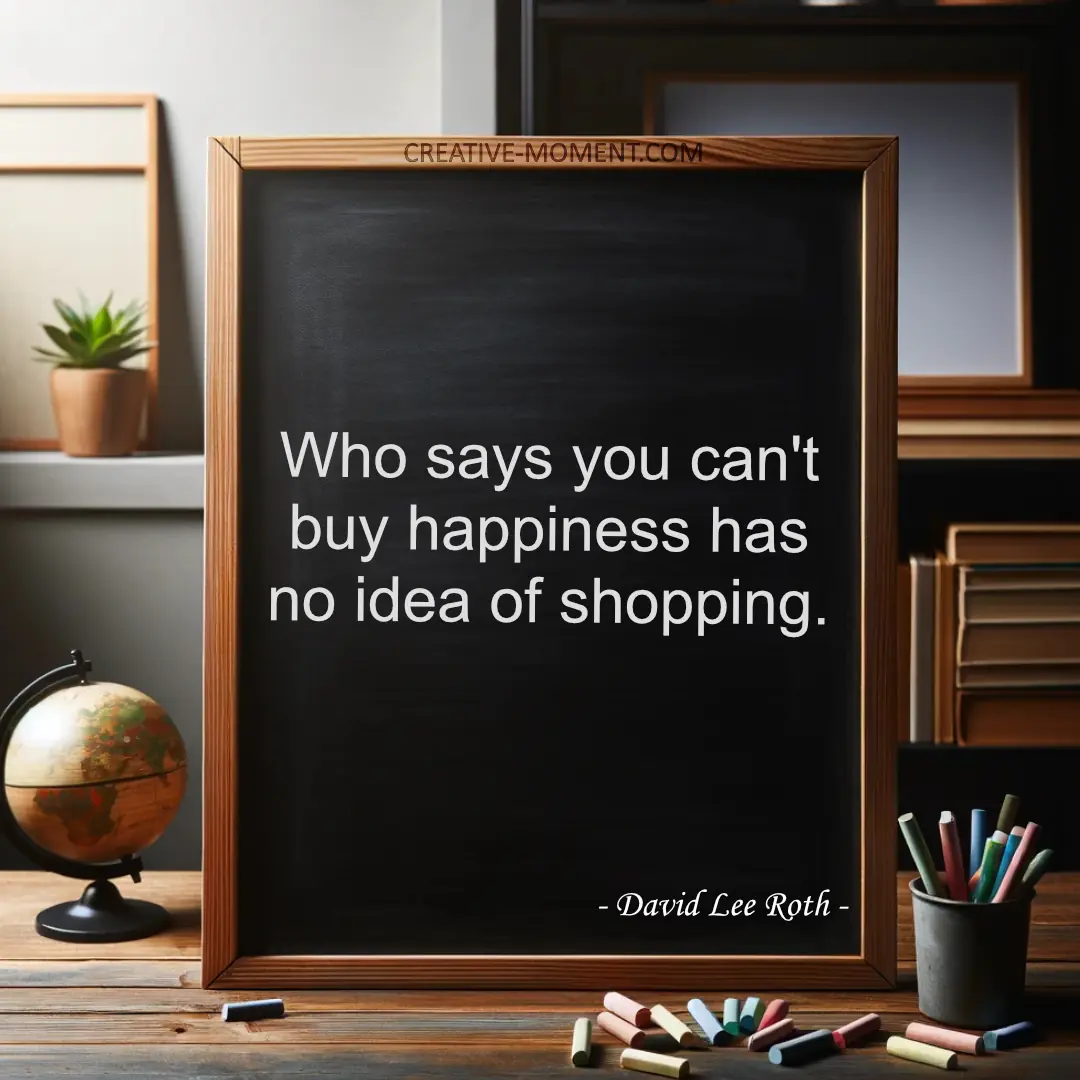Saying: Who says you can't buy happiness has no idea of shopping
Info
- Title: Who says you can't buy happiness has no idea of shopping
- Type: Sayings
- Category: Humor and Wit
- Print: Download as PDF for printing
The humorous quote "Who says you can't buy happiness has no idea of shopping." is commonly attributed to the American singer and entertainer David Lee Roth. The statement ironically links the concepts of happiness, consumption, and shopping. It gained popularity through frequent usage on social media and humorous quote collections.
Origin and Usage of the Quote
David Lee Roth, born in 1954 and widely known as the frontman of the rock band Van Halen, is popularly considered the author of this humorous quote. Originally, the quote in English is "Who says you can't buy happiness has no idea of shopping." While the exact date and original context are uncertain, it regularly appears on quote websites and humorous platforms.
Apart from social media, this quote is prevalent in popular magazines, books, and articles addressing lifestyle, consumer behavior, and contemporary social commentary, often serving as an ironic remark about consumer culture.
Meaning and Interpretation of the Quote
The statement attributed to David Lee Roth ironically challenges the popular saying "you can't buy happiness," humorously suggesting shopping as a means of achieving temporary satisfaction or happiness.
Central to the quote is the ironic connection between shopping and happiness, positing the thesis that consumption can indeed be experienced positively. It playfully critiques those who categorically dismiss all consumerism as superficial or meaningless.
Simultaneously, the quote subtly critiques a society where shopping serves as a legitimate source of temporary happiness. It humorously mirrors the reality that consumer behavior often aims at enhancing personal well-being.
Philosophically, the quote implies that happiness need not necessarily be immaterial. It humorously encourages reflection on modern conceptions of happiness and the role material possessions play.
- Ironic perspective on the relationship between consumption and happiness
- Critique of excessively anti-consumerist attitudes
- Humorous portrayal of contemporary shopping culture
- Reflection on material happiness and societal values
- Commentary on modern pursuits of immediate satisfaction

